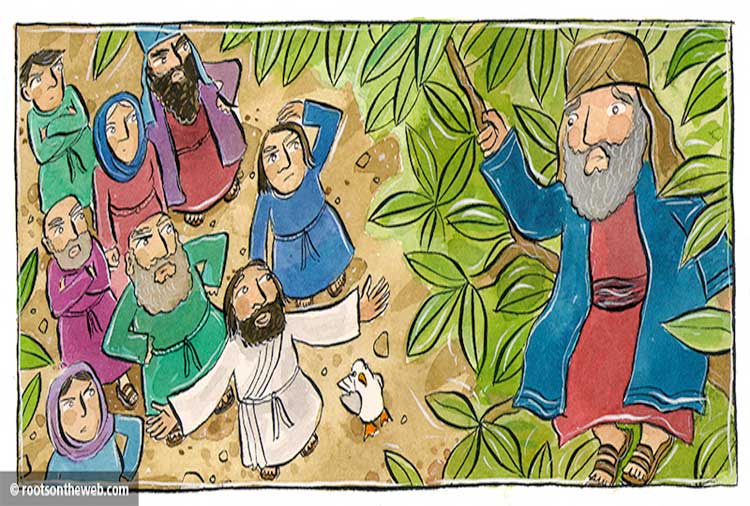In touch | Check-in | Intercessions
In touch
Up-to-the-minute jumping-off points for sermons, linking the reading to the latest news and global issues
Era of realism
‘Come now, let us argue it out, says the Lord’ (Isaiah 1.18) – it is time to face the truth.
Context
The fantasy projected by Liz Truss and her first Chancellor, Kwasi Kwarteng, represented a myth about Brexit being something which would lead to a political garden of Eden. The Guardian has a view on this from Timothy Garten Ash.
The Conservative party as a whole was caught up in this delusion. But we might say that the Labour Party, in electing Corbyn as their leader, was similarly choosing an extreme fantasist. Reality seems to have dawned on both sides of the political spectrum.
Isaiah and Jesus get behind false ideas about what God is like and reveal the creator more truly.
Ideas for sermons or interactive talks
Isaiah, writing at a time when true monotheism is beginning to emerge, goes back over ancient stories about God and re-interprets them. The names Sodom and Gomorrah are famous, and everyone will recall their fate. But Isaiah makes the point that offering any kind of sacrifice to God is inappropriate; the creator of everything does not need an offering from what he has already made and given to his creation. What God wants is ‘cease to do evil, learn to do good; seek justice, rescue the oppressed, defend the orphan, plead for the widow’ (Isaiah 1:16-17).
Jesus similarly challenges the usual ideas about God. After he calls Zacchaeus we are told, ‘All who saw it began to grumble and said, ‘He has gone to be the guest of one who is a sinner’.’ The complaint is not so much about the little tax collector but it is a complaint about Jesus’, indeed, God’s behaviour. They are astonished that God should bother with what they regard as this horrid little no-good.
This story features towards the end of the Gospel, and anyone who has read this far will know of another tax collector, Matthew/Levi, who was called to be one of the apostles. Here the story centres on the new understanding Zacchaeus has about God in the light of Jesus’ acceptance of his hospitality. He, like Matthew, is totally changed. Jesus then declares (in verse 10) that this is his mission: ‘the Son of Man came to seek out and to save the lost.’ It is no less than a dramatic enactment of the story of the prodigal son.
What we have seen in the political life of the nation is the delusion of members of the Labour party in choosing Corbyn above the obvious mainstream candidates, and then Conservatives being charmed by the fantasy that Brexit would mean that the ordinary rules of fiscal responsibility no longer applied, and we would be free to make enormous give-aways at no cost. Reality has now hit both sides of the political spectrum, and we are all wiser, poorer and sadder as a result. How different in Scripture, where the revealing of God’s true nature gives hope to those who were lost.
Questions for discussion
- Are there Old Testament stories is which we feel God is not understood, or portrayed wrongly? Which stories do you find especially difficult?
- Find stories in the Gospels where Jesus forgives. Is it easy to forgive?
- How difficult do we find it to forgive?
Revd Dr Tom Ambrose is an Anglican priest in the Parish of the Ascension, Cambridge.
Check-in
Connecting faith with everyday, real-life issues for young people
Last weekend saw the final of The Masked Dancer, a show in which twelve celebrities dance having been transformed into an alter-ego hidden behind a mask. The most exciting moment comes as, after weeks of getting to know their character, the mask is removed and the audience sees someone often quite different from the person they were expecting. You can hear the gasps as the crowd is surprised to find someone different from the character they thought they knew. Have you ever made a judgement about what you thought someone would be like, then been surprised to get to know the ‘real them’?
The crowd in Luke 19:1-10 might have gasped in the same way as they were surprised by the transformation in a character they thought they knew. For years they had known Zacchaeus as a tax collector, someone they mistrusted. They had known Jesus as a holy man, someone who they expected would spend his time with ‘good’ people. Jesus surprises the crowd by choosing to spend time with Zacchaeus, showing him love and acceptance. The effect this has on Zacchaeus is even more surprising – in meeting Jesus, he discovers a better version of himself and is transformed into someone generous and fair. He shocks the crowd by paying back several times over anything he has cheated from them. Meeting Jesus changed Zacchaeus. In what ways does knowing Jesus change your life?
Jesus was generous to Zacchaeus by offering him love, friendship and acceptance even when that risked his own reputation. Jesus also asked Zacchaeus to be generous, by asking him to host Jesus for lunch. Both giving and receiving a generous welcome play an important part in this moment of transformation. Who could you offer a generous welcome to? Who might be offering a generous welcome to you? What generous action could you take this week that would help show God’s love to others?
Darren Philip is National Stewardship Consultant with the Church of Scotland where he writes resources for intergenerational ministry.
Hypertext links to other websites are for the convenience of users only and do not constitute any endorsement or authorisation by ROOTS for Churches Ltd.
The week in focus is also available via Twitter and facebook.
ROOTS publishes weekly lectionary-based worship and learning resources online and in two magazines. FIND OUT MORE.
